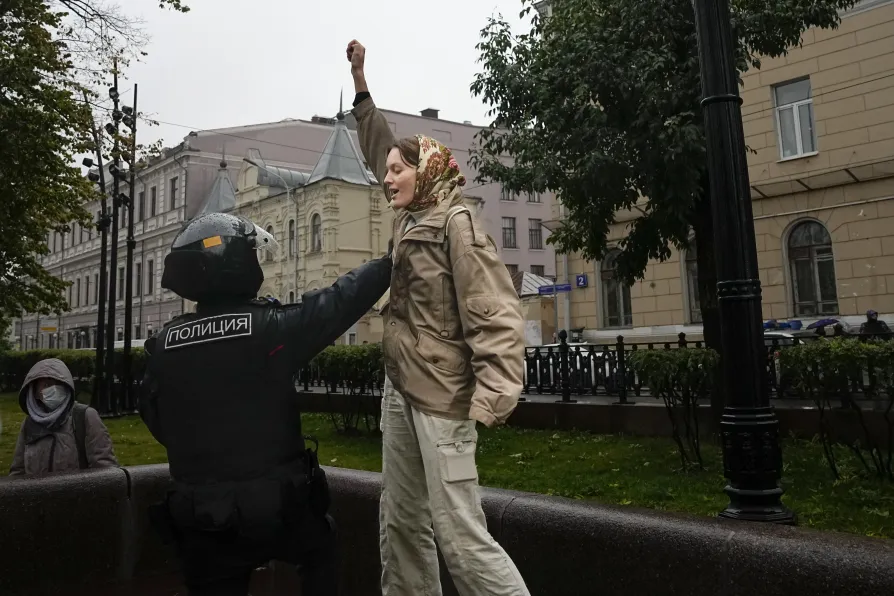
 A police officer detains a demonstrator during a protest against a partial mobilization in Moscow, Russia, September 24, 2022
A police officer detains a demonstrator during a protest against a partial mobilization in Moscow, Russia, September 24, 2022
A UNITED Nations special rapporteur monitoring human rights in Russia said today that “repression is escalating,” with civilians, journalists and even Ukrainian prisoners of war targeted in an attempt to silence dissent and opposition to the war in Ukraine.
Mariana Katzarova’s latest report says that Russian authorities have stepped up their use of “criminal prosecution, long-term imprisonment, torture and ill-treatment” to quell opposition to the war ordered by President Vladimir Putin.
“The repression is escalating … and becoming massive,” she told journalists before presenting the report to the Human Rights Council, which created her post after Russia’s full-scale invasion of Ukraine began in February 2022.
“The masterminds of this repression are employing new elaborate tools against a total impunity for their actions,” Ms Katzarova said. “Torture is also part of this equation, as a tool.”
Her report says that over the year covered, starting in mid-2024, the number of prosecutions increased, “with at least 3,905 individuals convicted on administrative or criminal charges for peaceful dissent.”
By the end of July, more than 150 children aged 14 to 17 had been added to the federal list of “extremists” and “terrorists,” Ms Katzarova’s report says, adding that some were accused of treason and subjected to torture to extract confessions.
By the middle of that month, a total of 1,040 individuals and organisations — nearly one-quarter of them journalists — had been designated as “foreign agents,” including 133 added since January.
“Torture and ill-treatment in the Russian Federation remain widespread and systematic, affecting not only Russian citizens but also Ukrainian prisoners of war and civilian detainees,” the report said.
“At least 258 cases of torture by law enforcement, prison staff and inmates acting under orders of prison authorities were documented in 2024-25.”
Meanwhile, at least seven Russian aircraft bombarded the southern Ukrainian city of Zaporizhzhia overnight, killing three people and wounding two others, regional administration head Ivan Fedorov said today.
The attack started at about 4.20am and lasted about 40 minutes, he said. Residential buildings, shopping centres, a car park and “critical infrastructure” were targeted, he added.
“None of the sites had anything to do with military infrastructure,” Mr Fedorov pointed out.










